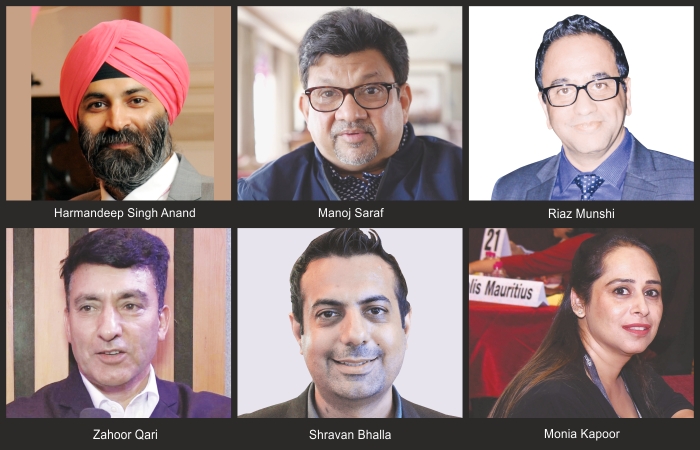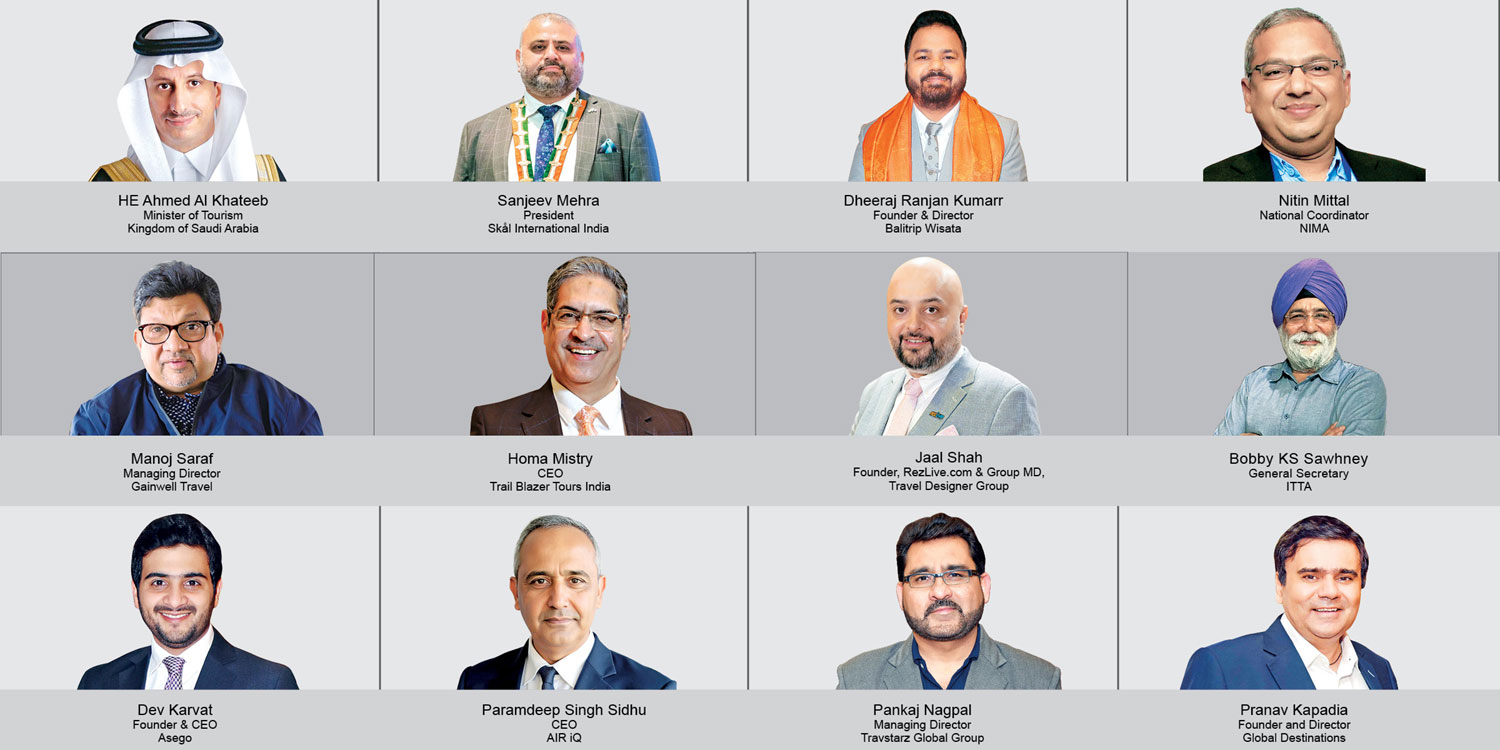Virtual events have been a lifesaver for the travel industry during the pandemic. A targeted audience, low cost, and maximum results are making agents and NTOs stick to webinars and online travel shows. Online events help in reaching out to a wider audience, giving a chance to interact with suppliers from remote destinations.
Nisha Verma
The pandemic saw technological solutions for meetings run over time, with people discovering a new way to conduct B2B meetings, conferences, and exhibitions.
The positives
Harmandeep Singh Anand, MD, Global Panorama Showcase (GPS), one of the first physical shows with a strong focus on technology and virtual participation. “The most significant benefit of a virtual event is that participants can access or connect at their convenience. Since 2016, GPS has been doing so by going paperless and using the GPS Connect App and an online platform to connect buyers and sellers. “GPS Connect is a recurring platform that allows buyers and sellers to connect whenever they want by mutual agreement,” he explains.
Agrees Manoj Saraf, MD, Gainwell Travel, “The best part of attending an event online is that people can connect from anywhere in the world, and save money, time, and logistics in the process.”
The convenience of a virtual event, according to Riaz Munshi, President, OTOAI, is unrivalled. “There’s no need to travel, and you will have more time to interact with the other person.” As a result, everyone saves time and has access to all the information they require. While meeting in person has its own benefits, attending online events allows you to be specific and focused on what one is looking for. “Virtual will be the way forward for specialised and time-specific events even after physical events open,” Harmandeep adds.
Zahoor Qari, Chairperson & Managing Executive, Air Links Tours and Travels, also says, “Virtuality provides us the luxury of attending events in the comfort of our own homes. Therefore, we are relaxed and more focused.”
Lifeline during the pandemic
Shravan Bhalla, General Secretary, OTOAI, claims that there were many advantages for a travel agent during the pandemic to attend various webinars and exhibitions. “They got connected to the right people for future business prospects. When there was no business or hardly any business, all agents kept themselves busy by gaining knowledge and updates on various destinations and virtual product training events. It was the only way to stay connected with colleagues. In fact, agents from small towns and cities were able to connect digitally, which was not always possible for them when they attended actual meetings.”
Innovations galore
While virtual events existed prior to the pandemic, they have gotten a new lease on life in the last two years, thanks to an increase in the number of users. Qari enjoys the breakout sessions in virtual events since they allow for targeted talks. “Being from J&K, though, having high-speed internet and an uninterrupted power supply is a bit of a ‘wild goose chase. I would want some innovations to ensure the availability of alternatives to those key factors for successful online events.”
“Since virtual events became a reality on Zoom, Google, and other such platforms, there have been a lot of improvisations,” Saraf adds. A travel trade show such as SATTE, WTM, or ITB, for example, provides the feel of a real event with real people behind virtual booths.”
The video feature of such events, according to Monia Kapoor, EC Member of OTOAI and CEO of Travel O Holidays, is a terrific asset. “The aspect of virtual events, which permits video conversations and direct communication with one other, gives them the impression of a physical event and is critical for all events.”
Anand adds that despite being in existence for almost 10 years, virtual platforms like Zoom and Google were only used by large corporates based in Europe and the US. “They were never considered as platforms for B2B engagements, events, and exhibitions. COVID-19 made people think of them as a way of connecting with potential buyers, and they have been active since May 2020,” he claims.
More targeted
Saraf claims that virtual events are more targeted. “They definitely save time as you do not have to travel for them.”
Echoing similar thoughts, Bhalla adds, “Virtual meetings save a lot of time as webinars are largely attended. Secondly, virtual meetings give access to all the agents in tier-2 or 3 cities to be a part of the events.”
Anand says that while everyone can walk into a physical event, in virtual events, both buyers and sellers can filter their meetings accordingly. “International destinations can only have meetings with outbound operators, while domestic operators can only focus on states and not NTOs. This plays a major role in virtual platforms,” he claims.
He also informs us that with GPS Connect, agents can access previous webinars, which were held three to six months back. “It is like a Netflix platform created for the industry, where buyers can watch the webinar or
a session that we conducted at their own convenience. In terms of technology, that is what GPS has done, which no other platform or company has done,”he claims.
Learnings
Qari says that keeping the audience actively engaged is essential, e.g., by throwing questions and asking for brief input, etc. “Otherwise, there is a tendency for the audience to lose interest. Virtual attendance saves commuting time, so the attendees have more time to spend with family and engage in personal care activities,” he adds.
Saraf says that ultimately, a hybrid model or a combination of both virtual and real meetings will emerge as the way forward.
Bhalla agrees that the webinars save time. Also, he mentions that with most countries opening doors for Indians, they feel many issues related to travel (visa issues, COVID-19 protocols, health pass, air bubble, flight issues etc.) are being addressed. “We are pleased that the majority of tourism boards are actively engaging with agents by hosting virtual joint events and inviting visa counsellors and airlines to address various procedures and protocols and answer relevant questions/issues to make things easier.”
Online events help in reaching out to a wider audience, claims Kapoor. “We have had a chance to interact with many smaller destinations as well as suppliers from remote destinations, which were either not visible earlier or had never participated in physical events before.”
Munshi’s big takeaway from virtual events has been that they provide information on what’s going on in the industry and new trends. “People have attended virtual meetings to update and educate themselves across all parts of the trade, not just tourism.” This is the most efficient strategy, we were saved by the virtual world since we were able to obtain information and stay connected. People will use this platform for targeted meetings in the future, saving time and money,” he adds.
Suggestions
In order to make sure that agents do not just attend virtual events to showcase their presence online without gaining any knowledge. Bhalla suggests, “To overcome these issues, the destinations should provide a quiz session, with prices at the end, so as to keep them active throughout the webinar and, at the end, offer a participation certificate to the active participants.”
He also adds, “We have seen a state few tourism boards make the virtual events lively by making agents participate in cocktail or mocktail-making virtual events by sending a personalised kit to all registered participants, making it a fun-filled event.”
 TravTalk India Online Magazine
TravTalk India Online Magazine





